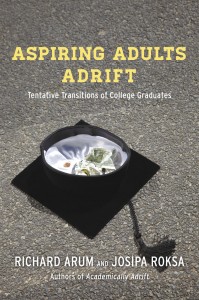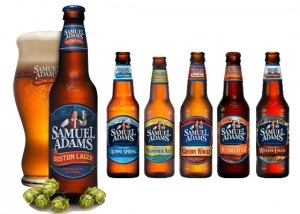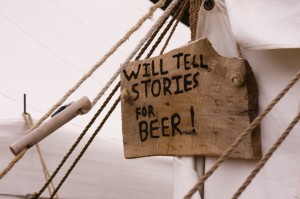I’d like to interrupt a string of post-conference seriousness (which has been great!), with some reading that is a little less serious engaging
intense lengthy. That’s it. Some things that are just more brief.
1. The Great Recession and Recent College Grads
 Christopher Newfield reviews Richard Arum and Josipa Roksa’s new book, Aspiring Adults Adrift. Contrary to the authors, Newfield finds that recent college grads are adapting more than they are “adrift.” Here’s the heart of Newfield’s critique of Arum’s and Roksa’s follow-up to Academically Adrift:
Christopher Newfield reviews Richard Arum and Josipa Roksa’s new book, Aspiring Adults Adrift. Contrary to the authors, Newfield finds that recent college grads are adapting more than they are “adrift.” Here’s the heart of Newfield’s critique of Arum’s and Roksa’s follow-up to Academically Adrift:
I don’t find the A-side, “adults adrift” narrative more convincing for graduates than I did for students and their colleges. For all three, I like “adapting” better than “adrift,” as in “Aspiring Adults Adapting” — to lower wages for high-skill jobs, to the destabilization of career paths, to the decline of the middle class, and to the defunding of middle-class institutions like public colleges and universities. Some graduates may respond to this bipartisan neoliberal bargain by trying to rekindle Occupy-style social movements. Others may build alternative economies. Most adapt by staying upbeat and flexible, displaying civility instead of confrontation, building their own professional networks, being willing to work 16 hour days, and keeping a permanent lookout for the next job, especially while socializing.
Check out the rest of Newfield’s review. He revisits Arum and Roksa’s first book, and offers more about the rest of the follow-up.
2. Sam Adams’ Brewing Founder and Billionaire Jim Koch as Craft-Brew Pioneer
James Fallows follows the life of Jim Koch (no relation to the politically-oriented Koch Brothers), arguing that Koch’s Sam Adams beer company paved the way for today’s “craft-beer renaissance.” Here are a three choice passages from Fallows’ piece:
[Koch] is one of the most cannily successful entrepreneurs of our time. When Koch graduated from Harvard College, in 1971, there were barely 150 breweries, large or small, in America. By 1984, when he started the Boston Beer Company with Rhonda Kallman, consolidation had eliminated all but 100. Now the number of small breweries is just over 3,000, with permits on file for 1,500 more. As my wife and I have visited cities for our American Futures reports on economic turnarounds, we’ve come to take the presence of craft brewers—and their more hip counterparts, craft distillers—as important markers of cities that are attracting the young and ambitious. A town with a craft brewery has a sense of the “local,” plus entrepreneurs who start the businesses, plus mainly young customers who spend time and money there. …
 Boston Beer, the company that makes Sam Adams, went public in 1995, with the ticker abbreviation SAM. Based on his holdings, Koch is now a billionaire. No one goes as far in business as Jim Koch has without creating enemies, or at least critics. The main gripe about him boils down to a sense that he’s posing as a friendly small-town publican when he is actually big enough to muscle others around. Sam Adams’s sales are more than double those of its nearest craft-beer rival (Sierra Nevada, of California) and nearly triple those of the next-largest (New Belgium, of Colorado).
Boston Beer, the company that makes Sam Adams, went public in 1995, with the ticker abbreviation SAM. Based on his holdings, Koch is now a billionaire. No one goes as far in business as Jim Koch has without creating enemies, or at least critics. The main gripe about him boils down to a sense that he’s posing as a friendly small-town publican when he is actually big enough to muscle others around. Sam Adams’s sales are more than double those of its nearest craft-beer rival (Sierra Nevada, of California) and nearly triple those of the next-largest (New Belgium, of Colorado).
“It was just embarrassing to be an American when everybody laughed at our beers,” he said. “Every time I’d hear the stupid canoe joke I’d get so pissed off.” (Review: Why is drinking American beer like making love in a canoe? Because they’re both fucking close to water.) This year Koch got something like the Nobel Prize in brewing, as the first American ever invited to give the main address at the Brau Beviale, a worldwide beer gathering in Germany. “Today, for people who pay attention, American beers are generally considered to be the best beers made in the world,” he told me. The U.S. has more new breweries and a wider range of styles than any other country, which has earned it a reputation as the place where beer’s future is being created. “We didn’t get there in wine,” Koch said, since California contends with rather than flat-out surpasses France, Italy, etc. “We’re there in beer.”
3. Storytelling and Human Flourishing
Cody Delistraty reflects on the psychological comforts of storytelling in The Atlantic. Here are some worthy passages that connect storytelling to human wellness and flourishing:
Stories can be a way for humans to feel that we have control over the world. They allow people to see patterns where there is chaos, meaning where there is randomness. Humans are inclined to see narratives where there are none because it can afford meaning to our lives—a form of existential problem-solving. …
Stories can also inform people’s emotional lives. Storytelling, especially in novels, allows people to peek into someone’s conscience to see how other people think. This can affirm our own beliefs and perceptions, but more often, it challenges them. Psychology researcher Dan Johnson recently published a study in Basic and Applied Social Psychology that found reading fiction significantly increased empathy towards others, especially people the readers initially perceived as “outsiders” (e.g. foreigners, people of a different race, skin color, or religion). …
 A recent study in Science magazine adds more support to the idea that stories can help people understand others, determining that literary fiction “uniquely engages the psychological processes needed to gain access to characters’ subjective experiences.” That’s to say, if you read novels, you can probably read emotions. …
A recent study in Science magazine adds more support to the idea that stories can help people understand others, determining that literary fiction “uniquely engages the psychological processes needed to gain access to characters’ subjective experiences.” That’s to say, if you read novels, you can probably read emotions. …
The value humans place on narrative is made clear in the high esteem given to storytellers. Authors, actors, directors—people who spin narratives for a living are some of the most famous people in the world. Stories are a form of escapism, one that can sometimes make us better people while entertaining, but there seems to be something more at play.
Perhaps the real reason that we tell stories again and again—and endlessly praise our greatest storytellers—is because humans want to be a part of a shared history
Here’s an intriguing aside in the last passages of Delistraty’s reflection:
Humans have been telling the same stories for millennia. Author Christopher Booker claims there are only seven basic plots, which are repeated over and over in film, in television, and in novels with just slight tweaks. There is the “overcoming the monster” plot (Beowulf, War of the Worlds); “rags to riches” (Cinderella, Jane Eyre); “the quest” (Illiad, The Lord of the Rings); “voyage and return” (Odyssey, Alice in Wonderland); “rebirth” (Sleeping Beauty, A Christmas Carol); “comedy” (ends in marriage); and “tragedy” (ends in death).
——————————————-
To recap, just remember that adrift college grads can adapt, cope, and even flourish if they have access to good beer and great stories!- TL

0